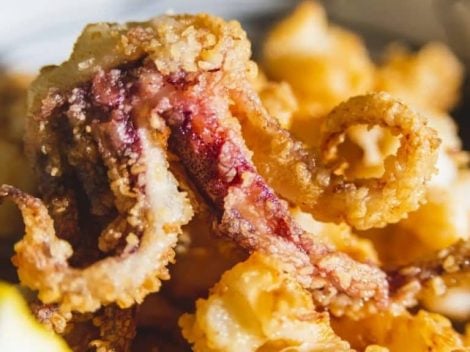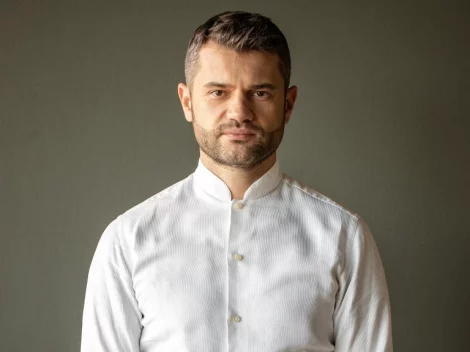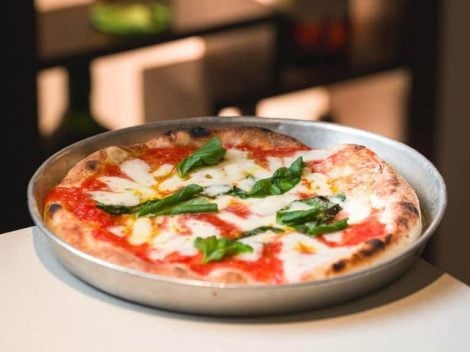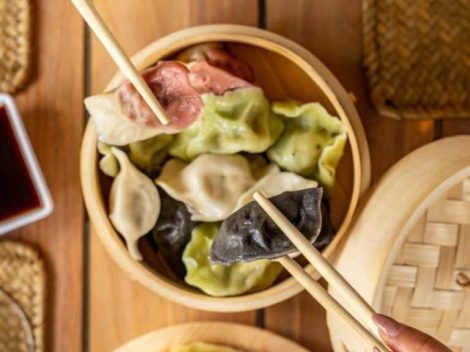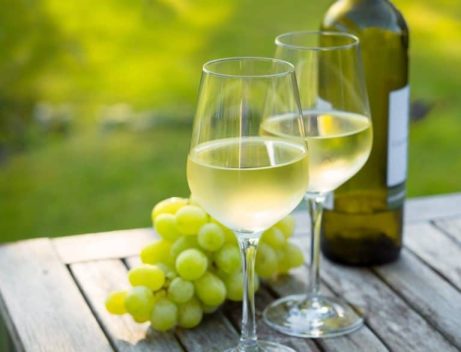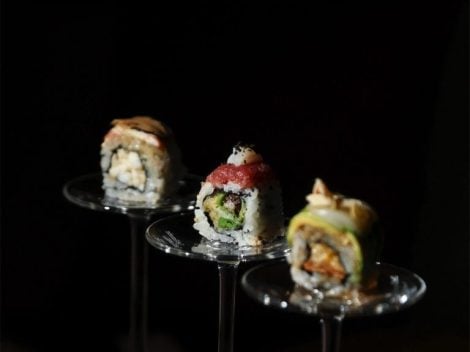by Renato Del Piero
A pale winter sun brightened the upholstery of the luxurious living room at 28 Hyde Park Gate on December 20, 1945. Charles Eade, the director of the "Sunday Dispatch," announced himself with a ring at the door. A maid opened the door, introducing the journalist to the first floor of the four floors that made up the over 500 square meters of the house Winston Churchill had purchased just a few months ago, after years that seemed like a lifetime in the Downing Street residence, from where he determined the fate of Britain and the world.
Lean meal, ample alcohol
At the table, a plate of eggs, cold turkey and salad, a pudding for dessert before coffee. A lean meal, considering the host, given post-war rationing and the need to work on the speeches that the former prime minister had decided to compile into volumes, which would become famous worldwide. However, if the meal was relatively frugal, what could not be missing abundantly on Sir Winston's table was alcohol. The two drank a bottle of Bordeaux; Churchill recounted that it had been a gift from the mayor of the town, chuckling about the hangover he had gotten the night before at the French embassy. After leaving the table and settling in the living room, the two got to work "after a cigar and numerous glasses of brandy."
Steak and fries for breakfast
If a modern nutritionist delved into the biography of one of the greatest statesmen of the 20th century, they would likely start screaming while pulling their hair. Churchill's entire lifestyle, if we didn't have solid direct testimonies to recount his extravagances, would be hard to believe. Even during the most critical days of World War II, the prime minister used to work from his bed at least until lunchtime, devouring meat and eggs in his pajamas, drinking Champagne, whiskey, and cognac from the morning. His typical breakfast consisted of two separate trays. On the first, the prime minister wanted poached eggs, toast, butter, jam, meat or cold cuts, coffee, and a splash of milk. On the second, orange juice and half a grapefruit with sugar, washed down with the first glass of whiskey and soda of the day.
He often indulged in a bath that could last an hour, working from the tub and receiving guests and staff completely naked, with a Cuban cigar or a glass of spirits alternating in the hand that wasn't holding documents to examine. This was followed by an afternoon nap that could last up to two hours, allowing the prime minister to continue working deep into the night, not without reserving adequate time for dinners drenched in rivers of alcohol. Yet his resistance was legendary. There is only one account of the prime minister being intoxicated during the entire course of the world conflict, despite the enormous quantities of alcohol consumed every day, whiskey in large glasses, diluted with water or soda.
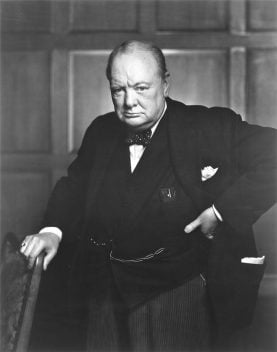
The nurse and the prime minister
In February 1943, Doris Miles, a twenty-eight-year-old nurse from St Mary's Hospital in London, entered 10 Downing Street. Churchill had contracted pneumonia, and his doctor had advised him to be assisted during the most critical moments of the illness. From her privileged vantage point, the girl began writing detailed and amazed letters to her boyfriend, published a few years ago in the formidable volume "Nursing Churchill." A glimpse into the daily life of a giant of history in one of his greatest moments of vulnerability. But anyone thinking that faced with a debilitating illness Sir Winston would indulge in hot broths and infusions would probably be left open-mouthed. "He's a steak and fries for breakfast type - Miles recounted, astonished - he hates porridge and milk." The list of drinks consumed throughout the day, also considering the precarious state of health, is completely nonsensical: "Champagne 10 ounces, brandy 2, orange juice 8, whiskey 8." Miles recounts that Churchill told her he couldn't live without Champagne: "In victory, I deserve it, in defeat, I need it," as he poured a glass of his favorite, the 1928 Pol Roger. At his death in 1965, the French company mourned the bottles exported to Britain, a minimum considering that some have speculated that Churchill consumed or offered over 40,000 bottles of bubbly nectar in his lifetime.
"We should cultivate chicken wings and breasts"
In addition to steaks, Sir Winston loved venison (especially served with pâté), truffle sauce, Dover sole, oysters, and Channel sardines, even better if imported from Normandy. He was also fond of cheeses, with Gorgonzola being his favorite, much to the perplexity of diners accustomed to the local Blue Stilton. Between myth and reality, it is said that he ordered the Royal Air Force not to bomb the countryside between Novara and Lombardy to avoid harming dairies that produced his beloved blue cheese. On second thought, this is not implausible for someone who defined his ideal of a good lunch as follows: "First, have good food; then, discuss good food; and, after elaborately discussing this good food, discuss a good topic... with me as the chief conversationalist." A visionary who somehow anticipated the debate on cultivated meat by ninety years. "We should escape the absurdity of growing a whole chicken just to eat the breast or wing, cultivating these parts separately in a suitable medium," he said in an essay in 1931. Surely written in large part in bed in the early morning, a steak on the plate, and a glass of whiskey on the bedside table.
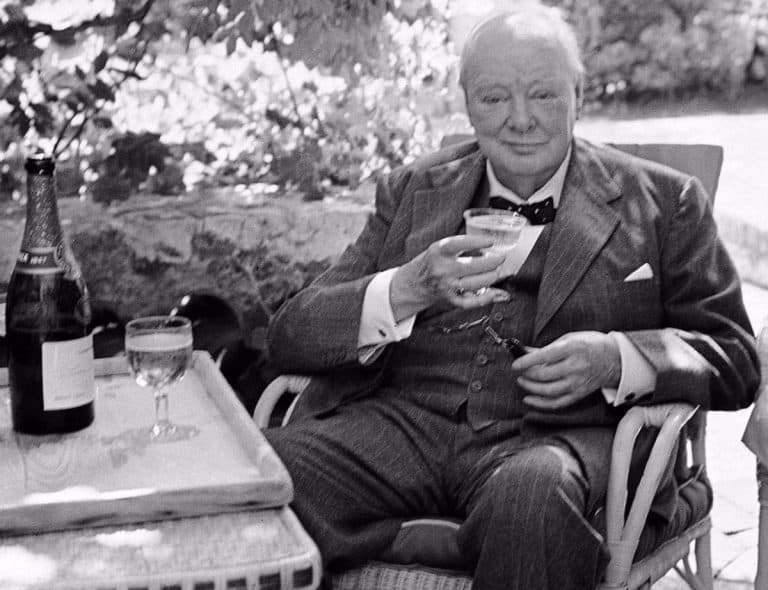
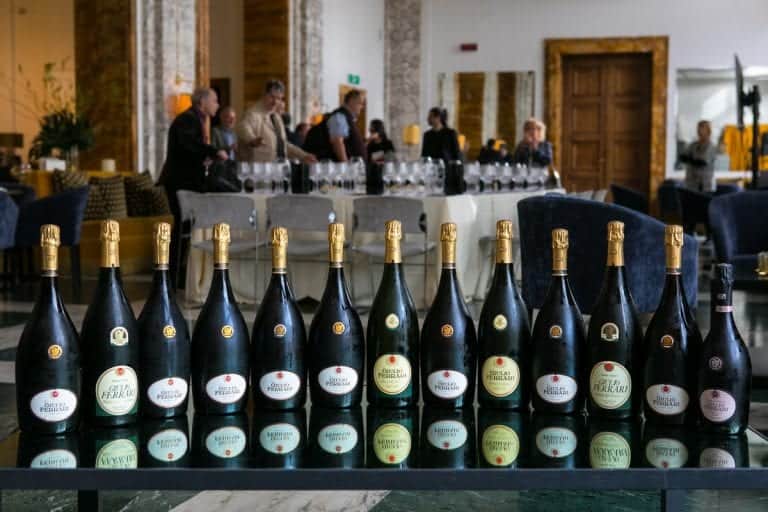 Fermentation named Ferrari. Here are 8 sparkling wines that tell the changing icon of the Metodo Classico
Fermentation named Ferrari. Here are 8 sparkling wines that tell the changing icon of the Metodo Classico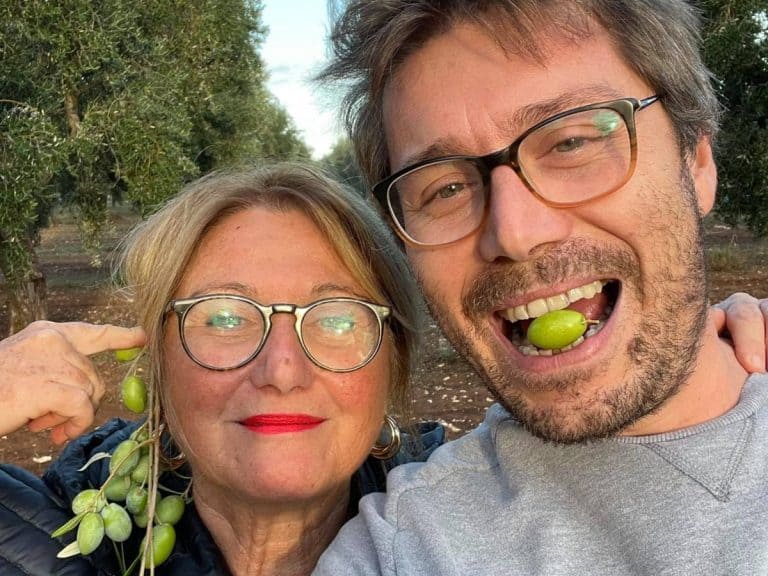 "I didn't know how to do anything, now I drive the tractor to save my father-in-law's oil." The incredible story of Alba Guarini and her farm
"I didn't know how to do anything, now I drive the tractor to save my father-in-law's oil." The incredible story of Alba Guarini and her farm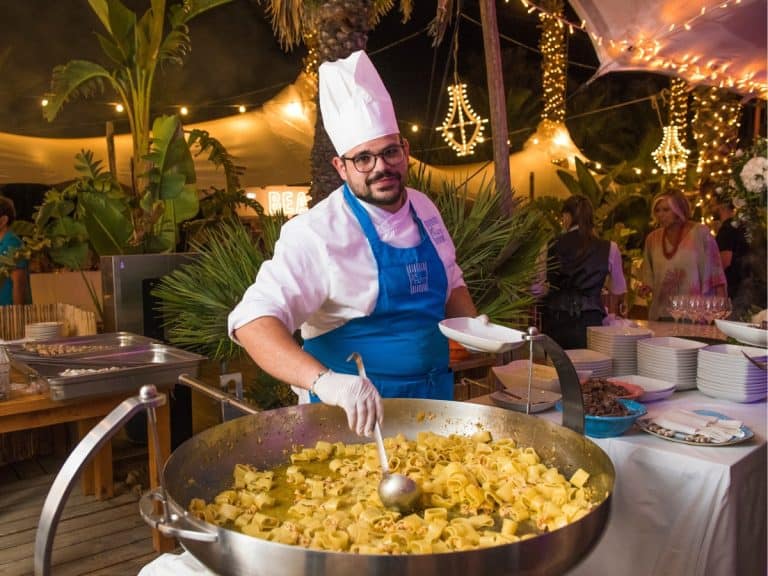 Masserie, lavish appetizers, and panzerotti. That's why everyone wants to get married in Puglia
Masserie, lavish appetizers, and panzerotti. That's why everyone wants to get married in Puglia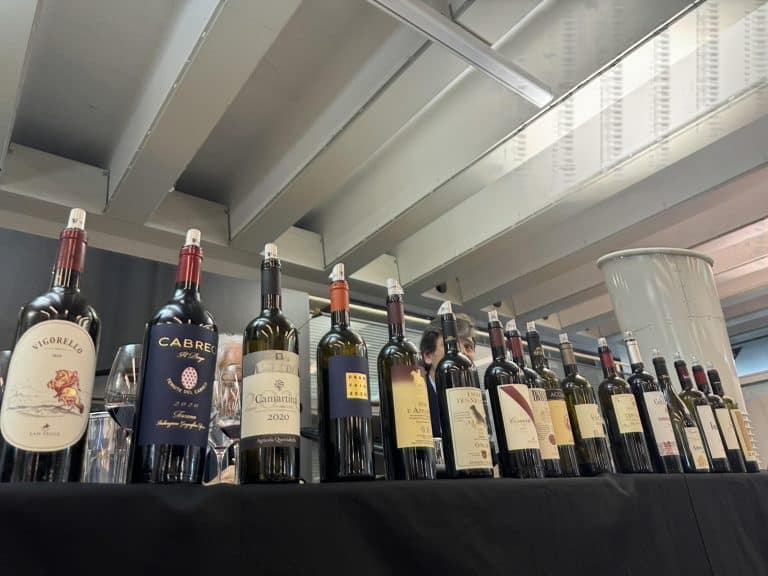 How Super Tuscans are changing. Here are 8 wines to try according to Gambero Rosso
How Super Tuscans are changing. Here are 8 wines to try according to Gambero Rosso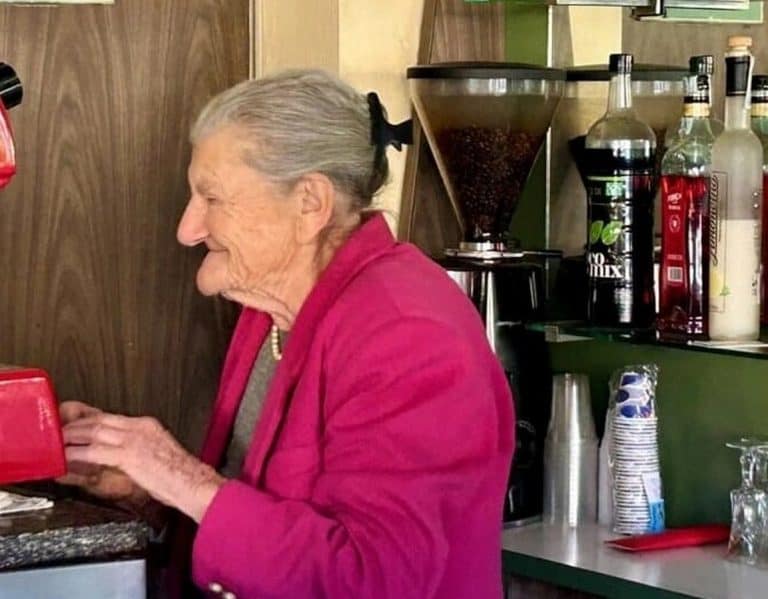 The oldest barista in Italy is located in Piedmont: she opened her bar on May 1st, 1958
The oldest barista in Italy is located in Piedmont: she opened her bar on May 1st, 1958